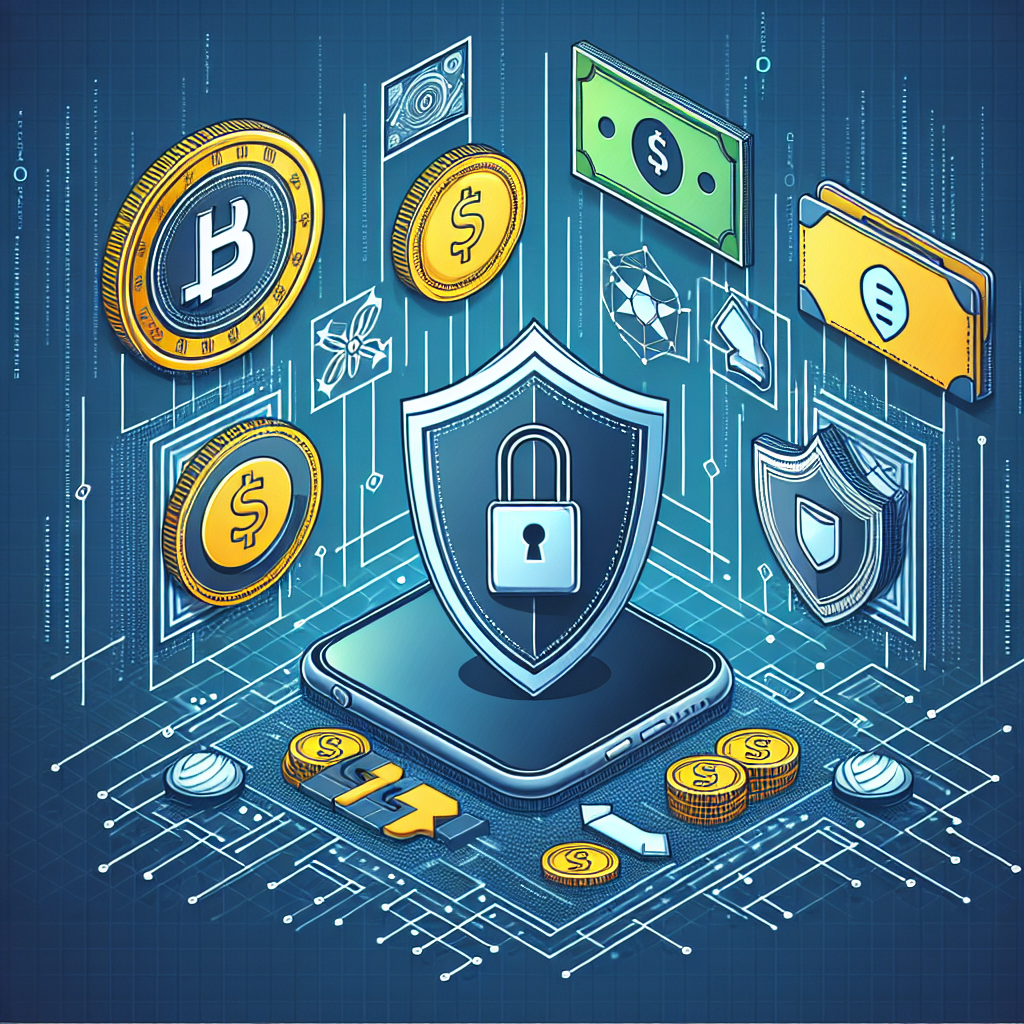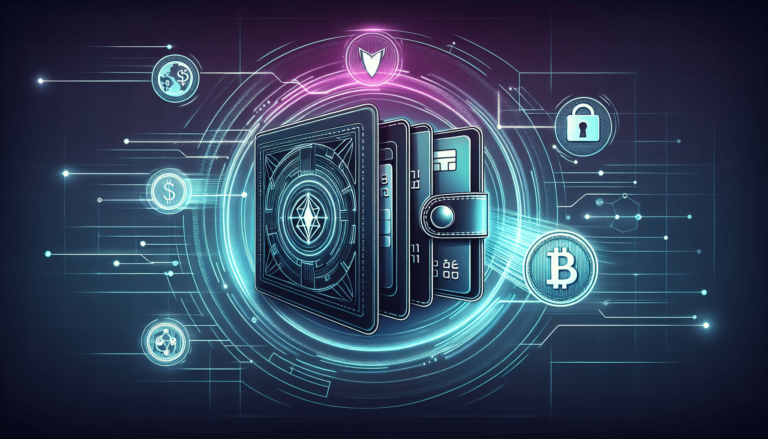What Is A Digital Wallet?

Imagine having all your credit cards, debit cards, and loyalty cards in one convenient place, accessible with just a tap on your smartphone. That’s the beauty of a digital wallet. It’s like carrying a virtual wallet in your pocket, storing all your payment information securely and allowing you to make purchases online or in-store effortlessly. With a digital wallet, you can say goodbye to the hassle of rummaging through your physical wallet and hello to a more seamless and convenient payment experience. But what exactly is a digital wallet, and how does it work? Let’s find out.
What is a Digital Wallet?
A digital wallet, also known as an e-wallet, is a virtual tool that allows you to securely store and manage your payment information, such as credit card details, bank account information, and even loyalty card data, all in one convenient place. It serves as a digital equivalent to the traditional physical wallet you carry in your pocket or purse, but with added functionalities and benefits.
Definition of a Digital Wallet
A digital wallet is a software-based application that allows users to make electronic financial transactions using their mobile devices or computers. It securely stores payment information, such as credit or debit card details, which can be used for making online or offline payments with ease. Additionally, digital wallets may also support the storage of identification cards, loyalty cards, and other essential documents.
Importance of a Digital Wallet
The increasing popularity of digital wallets can be attributed to the convenience and safety they offer. In an era where technology has transformed various aspects of our lives, a digital wallet is a convenient tool for managing financial transactions efficiently. It eliminates the need to carry multiple physical cards and cash, allowing you to make payments with just a few taps on your device.
Moreover, digital wallets provide enhanced safety compared to traditional methods of payment. By using encrypted technologies and secure authentication processes, they ensure that your financial details are protected from potential threats and fraud. This added layer of security alleviates the concerns of using physical cards, reducing the risk of card skimming or identity theft.

Types of Digital Wallets
There are several types of digital wallets available, each offering various features and functionalities to cater to different user needs. The most common types include:
-
Mobile Wallets: These wallets are specifically designed for smartphones and tablets. They can be installed as standalone applications or come pre-installed on your device. Mobile wallets typically offer features like in-store payments, peer-to-peer transfers, and even integration with loyalty programs.
-
Web Wallets: Web wallets are accessed through a web browser on your computer or mobile device. These wallets store your payment information online, allowing you to make payments on any device with an internet connection. They are often used for online shopping and can be convenient for those who frequently make purchases on various platforms.
-
Desktop Wallets: These wallets are installed on your computer or laptop and provide a more secure way to manage your digital currencies. They offer features like private key encryption and offline storage, making them an ideal choice for individuals who deal with cryptocurrencies or other digital assets.
-
Hardware Wallets: Hardware wallets are physical devices that store your digital currency safely offline. They provide an added layer of security by keeping your private keys offline, away from potential online threats. Hardware wallets are commonly used for cryptocurrencies and offer peace of mind to those concerned about the security of their digital assets.
Advantages of Using a Digital Wallet
Using a digital wallet has numerous advantages that make it an appealing choice for many individuals. Here are some of the key benefits:
-
Convenience: One of the primary advantages of a digital wallet is the convenience it offers. Instead of carrying physical cards or cash, you can make payments simply by using your mobile device or computer. It eliminates the need to search for the correct card in your wallet, making transactions faster and more efficient.
-
Security: Digital wallets prioritize security by implementing advanced technologies to protect your sensitive information. They utilize encryption techniques, secure access methods, and tokenization to safeguard your payment details. Additionally, with features like biometric authentication or one-time passwords, unauthorized access is significantly reduced.
-
Organized Finances: With a digital wallet, you can easily track and manage your financial transactions. The ability to store multiple cards and payment methods in one place allows for better organization and record-keeping. Additionally, some digital wallets offer budgeting tools and spending analysis, enabling you to stay on top of your finances.
-
Rewards and Offers: Digital wallets often integrate with loyalty programs and offer exclusive rewards and discounts. By linking your loyalty cards or participating in cashback programs, you can take advantage of various incentives and save money on your purchases.

Disadvantages of Using a Digital Wallet
While digital wallets provide numerous advantages, it is essential to consider the potential disadvantages as well:
-
Reliance on Technology: To use a digital wallet, you need access to a smartphone, tablet, or computer, along with a stable internet connection. In situations where technology fails or connectivity issues arise, making payments can become difficult or inaccessible.
-
Limited Acceptance: Although the popularity of digital wallets is growing, not all merchants accept this form of payment. It is crucial to ensure that the digital wallet you choose is widely accepted to avoid inconvenient situations where you are unable to use your preferred method of payment.
-
Security Risks: While digital wallets prioritize security, there are still potential risks involved. Hackers and cybercriminals are continually finding new ways to exploit vulnerabilities in technology. It is essential to choose a reputable and secure digital wallet provider and follow recommended security practices to minimize these risks.
How a Digital Wallet Works
The operation of a digital wallet involves several key steps:
-
Registration: To start using a digital wallet, you need to download the respective app or visit the provider’s website. Then, you will be required to create an account by providing necessary information, such as your name, email address, and sometimes your physical address or phone number.
-
Adding Payment Methods: Once registered, you can link your payment methods to your digital wallet. This involves inputting your card details or bank account information into the wallet’s interface. Depending on the wallet provider, you may also have the option to link loyalty cards, gift cards, or other identification documents.
-
Making Payments: After adding payment methods, you can use your digital wallet to make transactions. Whether you are shopping online or making in-store purchases, you can select the digital wallet as your preferred payment method. Some wallets may require additional verification steps, such as entering a PIN or using biometric authentication, to authorize the payment.
-
Transaction Confirmation: Once the payment is initiated, the digital wallet securely transfers the necessary payment details to the merchant or payment processor. The transaction is then processed and confirmed, often within seconds, providing a quick and seamless experience for both the buyer and the seller.
Security Measures in Digital Wallets
Digital wallets employ various security measures to ensure the safety of your financial information. These measures include:
-
Encryption: Digital wallets use encryption technology to scramble your payment details, making them unreadable to unauthorized parties who may try to intercept the data. This ensures that your information remains confidential and secure during transmission.
-
Tokenization: Many digital wallets use tokenization, where a unique token is generated for each transaction instead of transmitting your actual card details. The token serves as a substitute for the actual information, adding an extra layer of protection to the transaction process.
-
Biometric Authentication: To enhance security, some digital wallets offer biometric authentication methods such as fingerprint or facial recognition. These features ensure that only authorized individuals can access the wallet, adding an extra layer of protection against unauthorized use.
-
Two-Factor Authentication: Two-factor authentication (2FA) is another security measure employed by digital wallets. It requires users to provide a second form of verification, such as a one-time password or a verification code sent to a registered device, to confirm their identity and authorize transactions.
Popular Digital Wallet Providers
The digital wallet market is filled with various providers, each offering unique features and functionalities. Here are some of the most popular digital wallet providers:
-
Apple Pay: Available exclusively for Apple device users, Apple Pay allows you to make payments securely and easily on your iPhone, Apple Watch, or iPad. It supports both online and in-store transactions and integrates with various loyalty programs.
-
Google Pay: Google Pay is a widely used digital wallet available for Android devices, allowing users to make payments using their smartphones or smartwatches. It offers seamless integration and compatibility with numerous online and physical merchants.
-
PayPal: Known for its extensive reach, PayPal is a well-established digital wallet that enables users to make secure online payments. It supports multiple currency options and offers additional services such as peer-to-peer transfers and business payment solutions.
-
Samsung Pay: Exclusively for Samsung device users, Samsung Pay allows you to make payments using your Samsung smartphone. It supports both near-field communication (NFC) and magnetic secure transmission (MST) technology, making it compatible with a broader range of payment terminals.
Integration with Mobile Payment Systems
Digital wallets often integrate with mobile payment systems, further expanding their functionality and convenience. These integrations allow you to make payments using your digital wallet at physical stores or even for transportation services. Some popular mobile payment systems include:
-
NFC-based Payments: Near-field communication (NFC) technology allows for contactless payments by simply tapping your device against a compatible terminal. Digital wallets that utilize NFC technology enable you to make quick payments securely in stores or on public transportation systems.
-
QR Code Payments: Quick Response (QR) codes are another method of enabling mobile payments. Merchants display a unique QR code, which you can scan using your digital wallet app to initiate the payment. This method is commonly used in restaurants, cafes, and small businesses.
-
Transportation Payment Integration: Various cities around the world have integrated digital wallets with their transportation systems. Users can easily pay for their bus, train, or subway fares using their digital wallets, eliminating the need for physical tickets or cards.
Future Trends in Digital Wallets
As technology advances and consumer preferences evolve, digital wallets continue to grow and adapt. Here are some future trends to watch out for in the world of digital wallets:
-
Increased Adoption of Contactless Payments: The COVID-19 pandemic has accelerated the adoption of contactless payments, and this trend is expected to continue. Digital wallets, with their contactless capabilities, provide a hygienic and convenient solution for consumers.
-
Integration of Cryptocurrencies: With the increasing acceptance and use of cryptocurrencies, digital wallets are likely to integrate these digital assets into their platforms. Users will be able to store, manage, and transact with digital currencies seamlessly.
-
Enhanced Personalization: As digital wallets gather more data about user preferences and behaviors, they will be able to offer personalized recommendations and tailored offers. This will further increase user engagement and make digital wallets more appealing to individuals.
-
Integration of Augmented Reality (AR): The integration of augmented reality into digital wallets has the potential to revolutionize the shopping experience. Users will be able to virtually try on products, explore virtual stores, and make purchases directly from their digital wallets.
In conclusion, digital wallets have transformed the way we make payments and manage our finances. From their convenience and security to the seamless integration with mobile payment systems, digital wallets offer numerous advantages. As technology continues to evolve, digital wallets are likely to further enhance their functionality and become an even more integral part of our daily lives. So, why not give it a try and experience the benefits of a secure and efficient payment solution?








